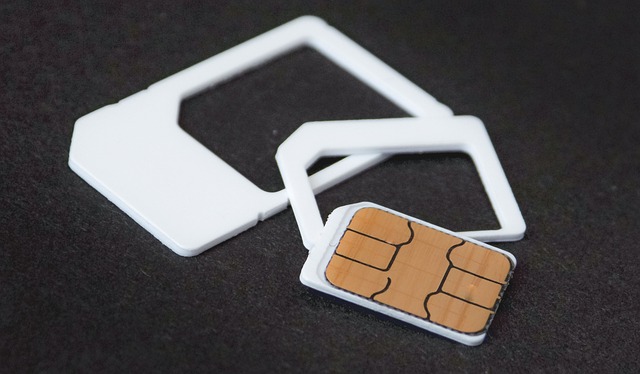Mobile Phone Contracts Explained: A Practical Guide to Costs and Benefits
Mobile phone contracts could be a way for users to combine service and device payments into one plan. This article offers a guide to how such contracts may operate, what benefits they might include, and why costs differ depending on the provider and selected features.

Mobile phone contracts represent agreements between consumers and service providers that typically include a handset and a service plan for a fixed period. These contracts have evolved significantly over the years, offering increasingly diverse options to meet different user needs. While they provide convenience and potential cost savings for many, understanding the fine print is crucial before committing to what is often a multi-year agreement.
Understanding the Benefits of Mobile Phone Contracts
Mobile phone contracts offer several advantages compared to pay-as-you-go options. One primary benefit is the ability to obtain premium smartphones without paying the full price upfront. Instead, the cost is spread across the contract duration, making high-end devices more accessible. Additionally, contracts often include generous data, call, and text allowances that might be more expensive if purchased separately.
Many providers also offer exclusive perks to contract customers, such as early access to new device upgrades, family discounts, or complementary subscriptions to streaming services. For heavy users, the inclusive allowances can represent significant value, especially when compared to the cumulative cost of pay-as-you-go services for similar usage patterns.
Breaking Down Contract Pricing Structures
Understanding how mobile phone contracts are priced helps consumers identify true value. Typically, contracts combine two main cost components: the device payment plan and the service plan. While advertised monthly rates might seem straightforward, they often hide complexities that impact the total cost of ownership.
Contract pricing usually involves an upfront payment (which varies based on the chosen handset), followed by fixed monthly payments. Some providers separate the device payment from the service cost, offering more transparency and flexibility. Others combine them into a single monthly fee, which can make it difficult to determine the actual value of each component. Additional charges may apply for exceeding data limits, international usage, or premium services not included in the base package.
Finding Contracts Available in My Area
Mobile coverage and contract availability vary significantly by location. Urban areas typically offer more provider options and stronger network coverage than rural regions. Before committing to any contract, it’s essential to verify network coverage in places you frequently visit, including your home, workplace, and regular travel routes.
Most major providers offer coverage maps on their websites, allowing potential customers to check service availability by entering their postal code. Independent comparison websites can also provide unbiased information about local coverage quality across different networks. Some providers even offer trial periods, allowing you to test network performance before fully committing to a long-term contract.
Comparing Contract vs. SIM-Only Options
When considering mobile phone contracts, it’s worth comparing them against SIM-only alternatives. SIM-only plans provide service without a new handset, typically at lower monthly costs and with shorter commitment periods. If you already own a phone you’re happy with, this option can offer significant savings.
Contract plans bundle the phone cost with service, which might be convenient but not always cost-effective. Calculating the total cost over the contract period (typically 24-36 months) and comparing it to buying a phone outright plus a SIM-only plan can reveal surprising differences. SIM-only plans also offer more flexibility, with many providers offering 30-day rolling contracts that can be changed or canceled with minimal notice.
Hidden Terms and Conditions to Watch For
Mobile phone contracts often contain clauses that can significantly impact your experience and costs. Early termination fees can be substantial, sometimes requiring payment of the remaining contract value. Mid-contract price increases, often tied to inflation, are increasingly common and can add unexpected costs over time.
Data throttling policies may reduce your connection speed after reaching certain usage thresholds, even on unlimited plans. Roaming charges and international usage fees can accumulate quickly when traveling abroad, despite recent regulations in some regions limiting these costs. Reading the terms and conditions thoroughly before signing helps avoid unpleasant surprises during your contract period.
Major Mobile Contract Providers and Their Offerings
The mobile contract market features several established providers with varying strengths and pricing strategies. Understanding what each offers helps identify which might best suit your needs.
| Provider | Contract Features | Monthly Cost Range | Notable Benefits |
|---|---|---|---|
| Verizon | Premium network, extensive coverage | $65-$90 | Priority customer service, entertainment bundles |
| T-Mobile | Unlimited data focus, 5G network | $60-$85 | Netflix subscription included, international texting |
| AT&T | Reliable coverage, family plans | $65-$85 | HBO Max with select plans, rollover data |
| Vodafone | Global roaming options, flexible contracts | $40-$70 | European roaming included, loyalty rewards |
| O2 | Customizable plans, priority tickets | $35-$65 | O2 Priority perks, flexible contract lengths |
Prices, rates, or cost estimates mentioned in this article are based on the latest available information but may change over time. Independent research is advised before making financial decisions.
Making the Right Contract Decision for Your Needs
Selecting the optimal mobile phone contract requires assessing your personal usage patterns and priorities. Start by analyzing your typical monthly data consumption, call duration, and messaging habits. Most providers offer tools to help estimate your needs based on previous usage.
Consider how long you typically keep phones before upgrading. If you prefer the latest models annually, contracts with early upgrade options might be beneficial despite potentially higher monthly costs. Conversely, if you tend to keep devices for several years, a shorter contract followed by a SIM-only plan might offer better long-term value.
Factor in network reliability in your specific location, as the most affordable contract has limited value if connection quality is poor. Finally, evaluate customer service reputation through independent review platforms, as this can significantly impact your experience when issues arise during your contract period.
Mobile phone contracts represent a significant financial commitment that extends beyond the advertised monthly fee. By thoroughly understanding the costs, benefits, and availability in your area, you can make an informed decision that balances your communication needs with budget considerations. Remember that the best contract isn’t necessarily the cheapest, but rather the one that provides reliable service and appropriate features for your specific usage patterns.




